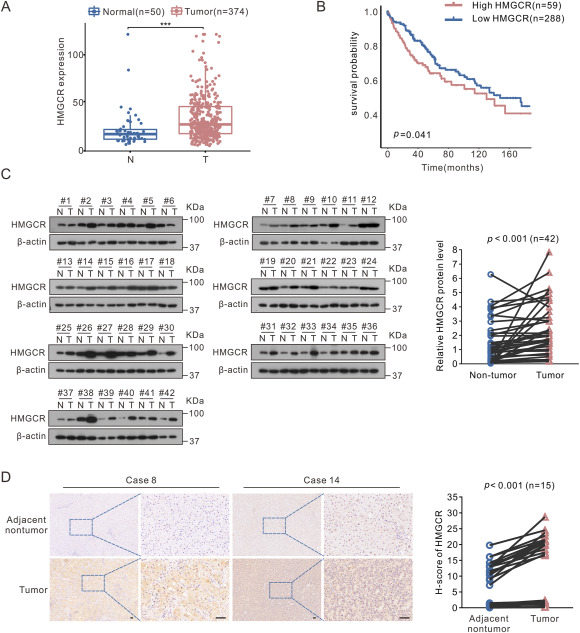
Inhibiting HMGCR represses stemness and metastasis of hepatocellular carcinoma via Hedgehog signaling


Cancer stem cells (CSCs) play a crucial role in tumor initiation, recurrence, metastasis, and drug resistance. However, the current understanding of CSCs in hepatocellular carcinoma (HCC) remains incomplete. Through a comprehensive analysis of the database, it has been observed that 3-hydroxy-3-methylglutaryl-coenzyme A reductase (HMGCR), a critical enzyme involved in cholesterol synthesis, is up-regulated in HCC tissues and liver CSCs. Moreover, high expression of HMGCR is associated with a poor prognosis in patients with HCC. Functionally, HMGCR promotes the stemness and metastasis of HCC both in vitro and in vivo. By screening various signaling pathway inhibitors, we have determined that HMGCR regulates stemness and metastasis by activating the Hedgehog signaling in HCC. Mechanistically, HMGCR positively correlates with the expression of the Smoothened receptor and facilitates the nuclear translocation of the transcriptional activator GLI family zinc finger 1. Inhibition of the Hedgehog pathway can reverse the stimulatory effects of HMGCR on stemness and metastasis in HCC. Notably, simvastatin, an FDA-approved cholesterol-lowering drug, has been shown to inhibit stemness and metastasis of HCC by targeting HMGCR. Taken together, our findings suggest that HMGCR promotes the regeneration and metastasis of HCC through the activation of Hedgehog signaling, and simvastatin holds the potential for clinical suppression of HCC metastasis.
